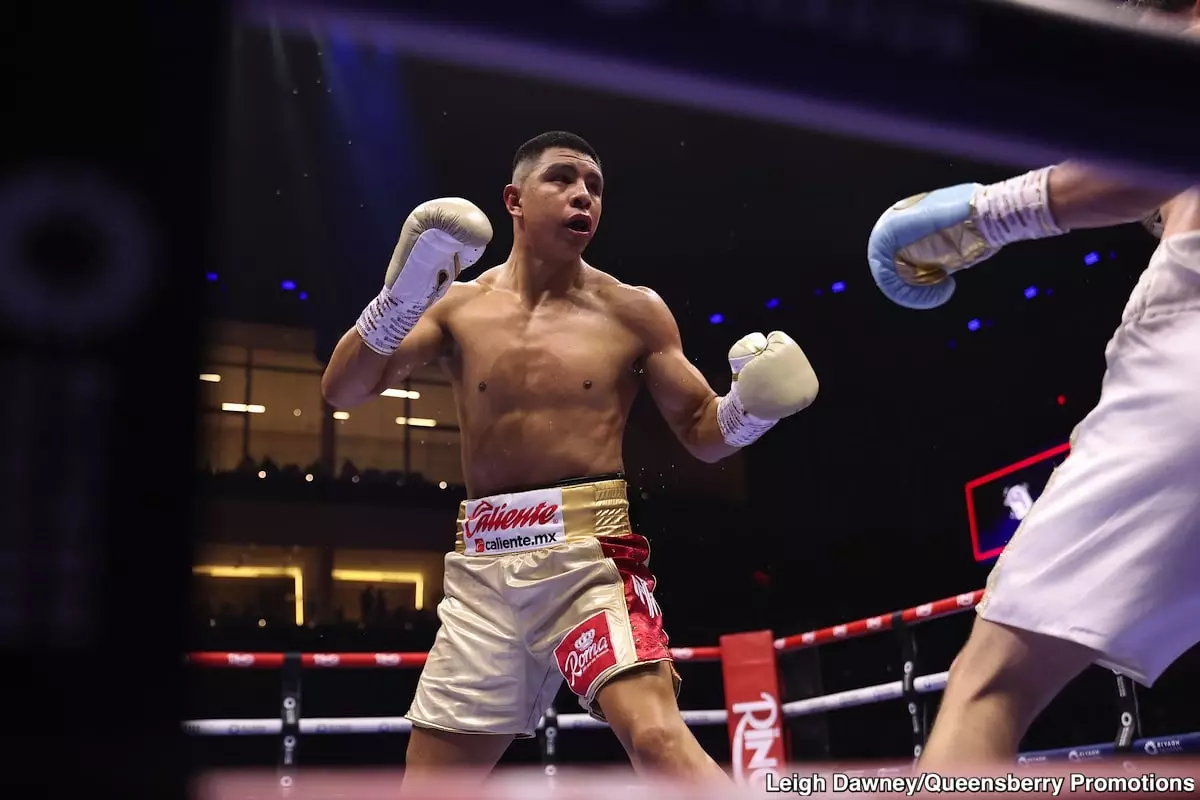The boxing world is currently embroiled in a scandal that could significantly tarnish the reputation of prominent trainer Eddy Reynoso. With Jaime Munguia recently testing positive for testosterone metabolites, he becomes the sixth fighter from Reynoso’s camp to face such allegations. This raises profound questions concerning the integrity of training practices and the environment that fosters the careers of these athletes. With Oscar De La Hoya being openly critical, the implications are far-reaching. De La Hoya’s disbelief regarding the consistent positive tests among Reynoso’s fighters brings to light a pressing need for a transparent discourse on performance-enhancing drug (PED) use within the sport.
Implications for Coaches and Fighters Alike
One cannot overlook the potential consequences for both the fighters involved and their coach. The notion that six athletes out of a single camp have tested positive inevitably leads to speculation regarding the training methods and overall atmosphere cultivated within that environment. De La Hoya’s incisive remark, “Somebody is guilty,” suggests a culture of complicity that is neither sustainable nor commendable. A trainer has a responsibility not just for the physical preparation of their fighters but also for their ethical training. If Reynoso is genuinely unaware of the PED usage in his camp, then that leads to questions regarding his oversight abilities. Conversely, if he is implicated in perpetuating a culture of steroid use, this could lead to severe professional ramifications.
The Fan’s Perspective on Ethics in Boxing
From the perspective of boxing fans, the fallout from such scandals is disheartening. Boxing has long struggled with detrimental stereotypes linked to corruption and unethical behavior. The repeated instances of fighters from a single camp testing positive for PEDs exacerbate these stereotypes, leading many to question whether they can trust the sport. While accusations alone should not define someone’s career, the sheer frequency of these incidents at Reynoso’s camp presents a pattern that cannot simply be brushed aside. Fans invest emotionally and financially in their favorite fighters, and revelations of this kind can irrevocably damage that connection.
The Wider Consequences for the Boxing Community
The ripple effect of such allegations reaches far beyond a single camp. It influences the entire boxing community, including sponsorship, boxing promotion entities, and the overall perception of the sport. Trust is paramount in any athletic domain, and once it is lost, rebuilding that confidence becomes an uphill battle. Promoters, such as De La Hoya, must ensure that they advocate for fair play and integrity, as the credibility of their fighters and the sport rests upon it.
Moreover, these instances call into question the protocols in place to mitigate the use of performance-enhancing drugs across the board. Current measures may appear inadequate, leading to discussions around implementing stricter policies that require more transparency to restore faith in the sport. As the boxing world watches these events unfold, the need for accountability and realistic measures in controlling drug use has never been more crucial.

